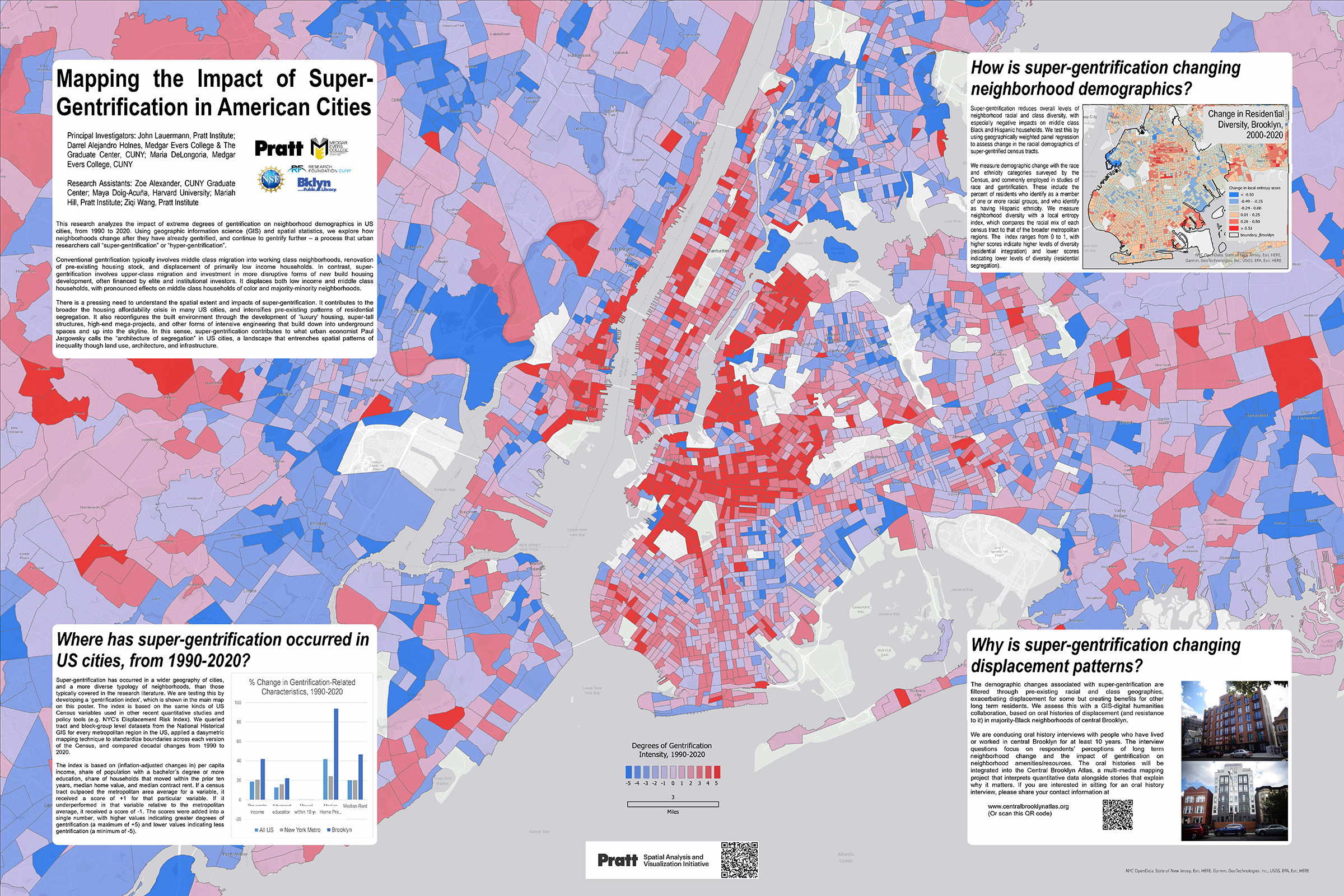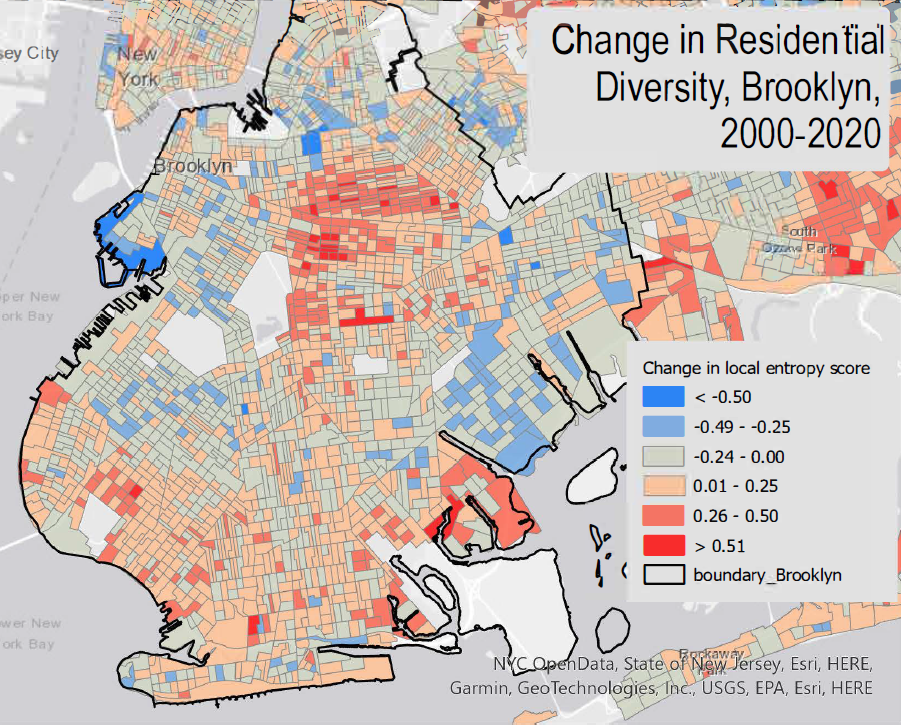
PARTNER
National Science Foundation
Research Foundation of CUNY
Brooklyn Public Library
SUMMARY
This research analyzes the impact of extreme degrees of gentrification on neighborhood demographics in US cities, from 1990 to 2020. Using geographic information science (GIS) and spatial statistics, we explore how neighborhoods change after they have already gentrified, and continue to gentrify further – a process that urban researchers call “super-gentrification” or “hyper-gentrification.”
Conventional gentrification typically involves middle class migration into working class neighborhoods, renovation of pre-existing housing stock, and displacement of primarily low income households. In contrast, super-gentrification involves upper-class migration and investment in more disruptive forms of new build housing development, often financed by elite and institutional investors. It displaces both low income and middle class households, with pronounced effects on middle class households of color and majority-minority neighborhoods.
There is a pressing need to understand the spatial extent and impacts of super-gentrification. It contributes to the broader housing affordability crisis in many US cities, and intensifies pre-existing patterns of residential segregation. It also reconfigures the built environment through the development of ‘luxury’ housing, super-tall structures, high-end mega-projects, and other forms of intensive engineering that build down into underground spaces and up into the skyline. In this sense, super-gentrification contributes to what urban economist Paul Jargowsky calls the “architecture of segregation” in US cities, a landscape that entrenches spatial patterns of inequality through land use, architecture, and infrastructure.
PROJECT TEAM
John Lauermann (SAVI)
Darrel Alejandro Hoines (Medgar Evers College & The Graduate Center, CUNY)
Maria Delongoria (Medgar Evers College, CUNY)
Zoe Alexander (CUNY Graduate Center)
Maya Doig-Acuna (Harvard University)
Mariah Hill (SAVI)
Ziqi Wang (SAVI)
YEAR
2021 – Current
FUNDING SOURCES
National Science Foundation, Award number 2127282, “The Impact of Super-gentrification on Neighborhood Composition”
